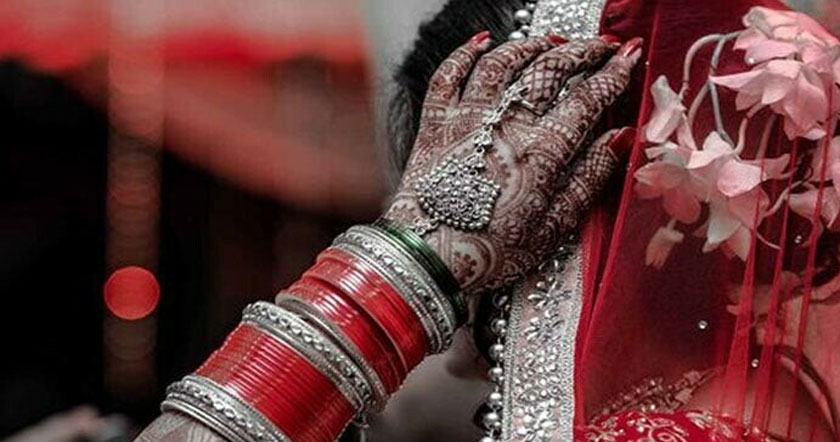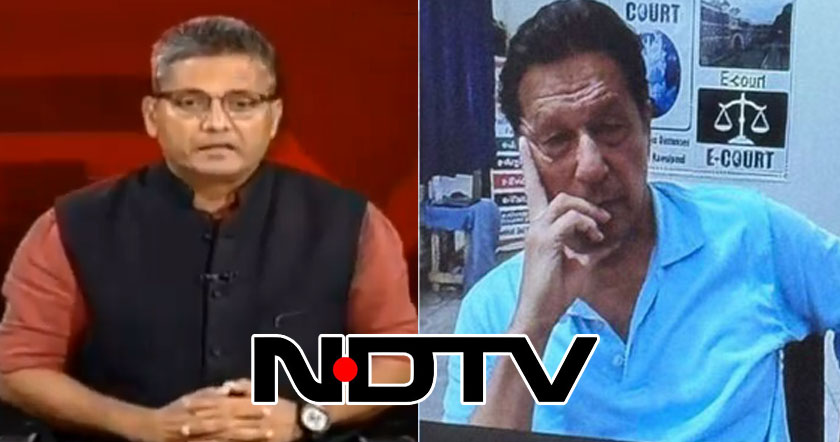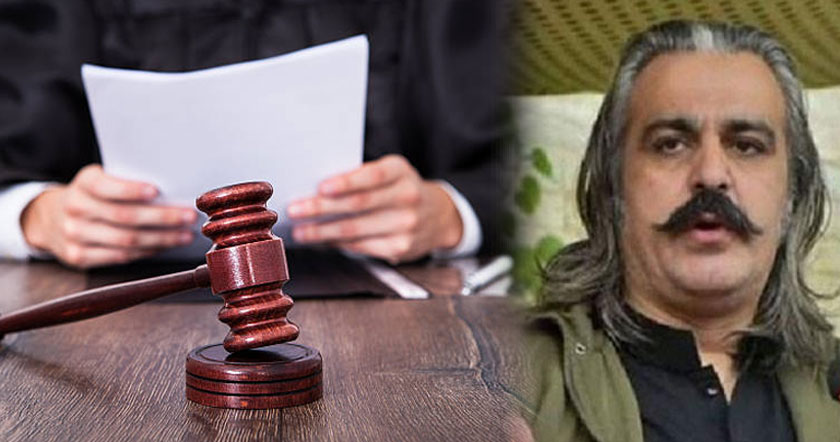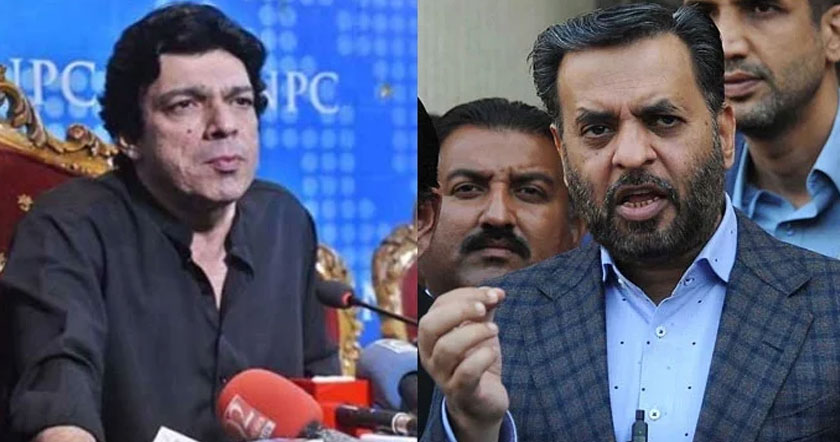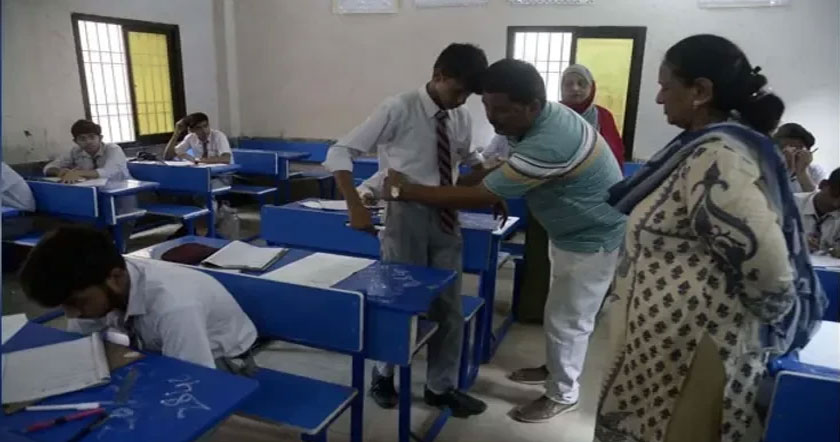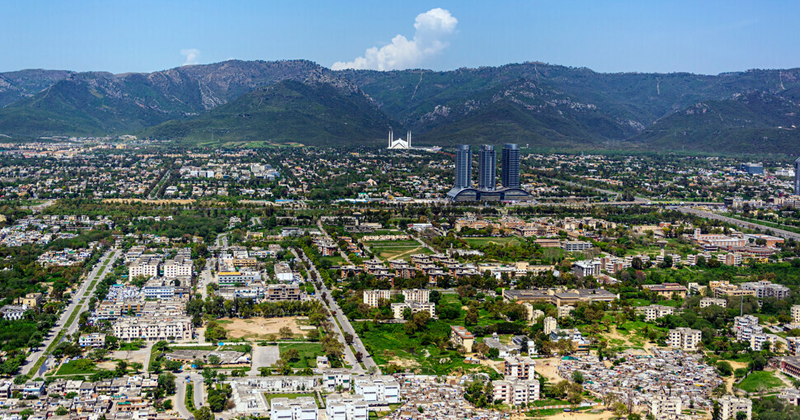Correct understanding of
Quranic verses and Ahadith
In the court of Allah ( سبحانہ و تعا لی ) the believers and non-believers are treated differently. Quranic verses and Ahadith
It is in Quran - أُولَـٰئِكَ هُمُ الْمُؤْمِنُونَ حَقًّا ۚ لَّهُمْ دَرَجَاتٌ عِندَ رَبِّهِمْ وَمَغْفِرَةٌ وَرِزْقٌ كَرِيمٌ [Meaning - Those are they who are in truth believers. For them are Grades (of honor) with their Lord, and pardon, and a bountiful provision. (Al-Anfal - 4)]
It is in Quran - وَلَوْ تَرَىٰ إِذْ يَتَوَفَّى الَّذِينَ كَفَرُوا ۙ الْمَلَائِكَةُ يَضْرِبُونَ وُجُوهَهُمْ وَأَدْبَارَهُمْ وَذُوقُوا عَذَابَ الْحَرِيقِ[Meaning - If you could see how the angels receive those who disbelieve, smiting faces and their backs and (saying): Taste the punishment of burning! (Al-Anfal - 50)]
It is in Quran - أَمْ حَسِبَ الَّذِينَ اجْتَرَحُوا السَّيِّئَاتِ أَن نَّجْعَلَهُمْ كَالَّذِينَ آمَنُوا وَعَمِلُوا الصَّالِحَاتِ سَوَاءً مَّحْيَاهُمْ وَمَمَاتُهُمْ ۚ سَاءَ مَا يَحْكُمُونَ [ Meaning - As for those who (do not have faith, and) indulge in (evil) sinful doings, do they think that We place them - both in their life and their death - on equal footing with those who have attained to faith and do righteous deeds? Bad indeed is their judgment. ] (Al-Jathiya - 21)
The above Quranic verses clearly specify that there are grades of honor and rewards for pious Muslims in Hereafter; while non believers and hypocrites are treated as criminals and are punished for their crimes. Therefore, the Graves of pious believers and the graves of disbelievers and hypocrites are not treated as same, even by the Angels. It is in Quran - أَمْ حَسِبَ الَّذِينَ اجْتَرَحُوا السَّيِّئَاتِ أَن نَّجْعَلَهُمْ كَالَّذِينَ آمَنُوا وَعَمِلُوا الصَّالِحَاتِ سَوَاءً مَّحْيَاهُمْ وَمَمَاتُهُمْ ۚ سَاءَ مَا يَحْكُمُونَ [ Meaning - As for those who (do not have faith, and) indulge in (evil) sinful doings, do they think that We place them - both in their life and their death - on equal footing with those who have attained to faith and do righteous deeds? Bad indeed is their judgment. ] (Al-Jathiya - 21)
Since the graves of non-believers (Mushrikeen) and hypocrites are the places of apostasy, we are forbidden from visiting them or making these graves higher from the ground or make domes over them.
Take the examples of mosques, churches and temples which are built as massive structures, but these buildings are not treated alike. Mosque is a place where we pray Allah( سبحانہ و تعا لی )[COLOR=[URL=http://www.siasat.pk/forum/misc.php?do=dbtech_usertag_hash&hash=222280%5D%5BFONT%3DGeorgia%5D]#222280][/URL] while Churches and Temples are places of apostasy where idols are worshiped; therefore, we should avoid visiting them for the purpose of prayers. [/COLOR]
The pious grave of Prophet Mohammad (صلى الله عليه و آله وسلم) and graves of Sahabah (رضئ اللھ تعالی عنہم اجمعین ) and Awliya Allah are like gardens of Paradise, where they receive paradise's cool breeze, therefore, building tombs over them is very much liked by Allah ( سبحانہ و تعا لی ) and His Apostle (صلى الله عليه و آله وسلم). We have explained this issue in detail in a separate Article. Read that Article
Prophet Mohammad's (صلى الله عليه و آله وسلم) place is exalted in the cosmos, as described in verse أَن يَبْعَثَكَ رَبُّكَ مَقَامًا مَّحْمُودًا ( Meaning - Allah - سبحانہ و تعا لی will raise you to the highest place of praise and glory ) (Al-Isra - 79). Therefore, his resting place, his pious grave, is naturally exalted in the cosmos and should be honored accordingly.
It is in Hadith - Narrated 'Abdullah bin Zaid Al-Mazini (رضئ اللہ تعالی عنہ): Allah's Apostle (صلى الله عليه و آله وسلم) said, "Between my house (currently his pious grave) and the pulpit (in Masjid-e-Nabawi) there is a Garden of the Gardens of Paradise." (Bukhari - Book #21, Hadith #286).
It is common sense that no one would like to visit the graves of Mushrikeen or hypocrites in the first place. It is also a known fact that we visit the graves of sinful (fasiq) Muslims only to pray for their pardon from Allah ( سبحانہ و تعا لی ). We do not sit there, or kiss their graves with reverence or ask them to pray for us. A person who is undergoing Azab for his wrong deeds, he neither deserves respect (on par with Awliya Allah) nor he can help others by his Dua.It is in Hadith - Narrated 'Abdullah bin Zaid Al-Mazini (رضئ اللہ تعالی عنہ): Allah's Apostle (صلى الله عليه و آله وسلم) said, "Between my house (currently his pious grave) and the pulpit (in Masjid-e-Nabawi) there is a Garden of the Gardens of Paradise." (Bukhari - Book #21, Hadith #286).
In our physical world also, we go to important officials to recommend our case to higher authorities. We do not go to a convict who is undergoing Jail term and ask for his help. If we do that, people will laugh at us.
Allah( سبحانہ و تعا لی ) loves everything related to Awliya Allah; be it their homes in this world, or their graves. This is the reason, their sacred bodies remain fresh in their graves. Read More (Part - III)
When we visit Rawdha-e-Rasool (صلى الله عليه و آله وسلم) or Graves of Sahabah (رضئ اللھ تعالی عنہم اجمعین ) and Awliya Allah, we should pay a lot of respect. We can touch these graves, or kiss them and request Awliya Allah to pray for us for our benefit in both the worlds. Remember, we don't go Sahabah and Awliya Allah's graves to seek their pardon from Allah ( سبحانہ و تعا لی ). If we do that, it will be treated as disrespect and we may be punished for our irrational behavior.
It is in Quran يَا أَيُّهَا الَّذِينَ آمَنُوا لَا تَرْفَعُوا أَصْوَاتَكُمْ فَوْقَ صَوْتِ النَّبِيِّ وَلَا تَجْهَرُوا لَهُ بِالْقَوْلِ كَجَهْرِ بَعْضِكُمْ لِبَعْضٍ أَن تَحْبَطَ أَعْمَالُكُمْ وَأَنتُمْ لَا تَشْعُرُونَ- إِنَّ الَّذِينَ يَغُضُّونَ أَصْوَاتَهُمْ عِندَ رَسُولِ اللَّهِ أُولَـٰئِكَ الَّذِينَ امْتَحَنَ اللَّهُ قُلُوبَهُمْ لِلتَّقْوَىٰ ۚ لَهُم مَّغْفِرَةٌ وَأَجْرٌ عَظِيمٌ - ( Meaning - O' you who believe! Raise not your voices above the voice of the Prophet (صلى الله عليه و آله وسلم), nor speak aloud to him in talk, as you may speak aloud to one another, lest your deeds become vain and you perceive not. Those that lower their voices in the presence of Allah's Messenger(صلى الله عليه و آله وسلم), their hearts has Allah ( سبحانہ و تعا لی ) tested for piety: for them is Forgiveness and a great Reward. (Al-Hujraat 2-3).
We are positive that no one in this world will ever be able to bring forth a 'Sahih report' from the Salaf or Khalaf prohibiting visiting the grave of the Prophet Mohammad (صلى الله عليه و آله وسلم) for tabarruk and tawassul by him after his death.
We are not talking about Salafis and their like minded scholars whose Iman is questionable as they believe in an Sky Idol as their God.
Salafis and their like minded groups confuse innocent Muslims by imposing Quranic verses and Ahadith on Prophet Mohammad (صلى الله عليه و آله وسلم), Sahabah (رضئ اللھ تعالی عنہم اجمعین ) and Awliya Allah which were actually meant for non believer Makkan Pagans and hypocrites.
In the following paragraphs, we explained this issue in detail and have cleared all doubts created by Salafis.
(1) It is in Quran - إِنَّمَا وَلِيُّكُمُ اللَّهُ وَرَسُولُهُ وَالَّذِينَ آمَنُوا الَّذِينَ يُقِيمُونَ الصَّلَاةَ وَيُؤْتُونَ الزَّكَاةَ وَهُمْ رَاكِعُونَ (Meaning - Your guardian (or solver of grievances) can only be Allah ( سبحانہ و تعا لی ) and His Messenger ( صلى الله عليه و آله وسلم ) and those who believe, who establish Salah, and pay Zakat and bow down (in prayer) (Al-Maeda - 55) ( Pickthal translation).
The above verse clearly establishes that Allah ( سبحانہ و تعا لی ) is the Guardian and solver of grievances of people. In addition, Prophet Mohammad (صلى الله عليه و آله وسلم) is also the guardian and solver of grievances of people in the sense that Allah ( سبحانہ و تعا لی ) listens to his prayers more than anyone else. Similarly, Sahabah (رضئ اللھ تعالی عنہم اجمعین ) and Awliya Allah are also guardians and solvers of grievances of people in the sense that their Dua is answered faster than the Dua of sinful Muslims.
The above Quranic verse clearly establishes the authenticity of Isteghatha (asking for help) and Tawassul (Mediation) of Prophet Mohammad (صلى الله عليه و آله وسلم), Sahabah (رضئ اللھ تعالی عنہم اجمعین ) and Awliya Allah, during their lives and after their deaths.
Ibn Taymiyya (1263-1328 ), the number one in command of Salafis wrote -
QUOTE - Some people came to the pious grave of our Prophet Mohammad ( صلى الله عليه و آله وسلم ) and requested something and their needs were fulfilled. In the same way, the pious people can also fulfill the needs of the people and we do not deny this. (Iqtida as-Sarat al-Mustaqim-page 373 by Ibn Taymiyya). UNQUOTE. [SIZE=+0]Read similar statements of other Salafi scholars[/SIZE]
We are providing below Arabic Manuscripts about Imam Ahmad affirming seeking blessings from the Prophet (صلى الله عليه و آله وسلم) by touching and kissing his Minber and Grave.


وفي كتاب العلل ومعرفة الرجال ما نصه: سألته عن الرجل يمس منبر النبي صلى الله عليه وسلم ويتبرك بمسه ويقبّله ويفعل بالقبر مثل ذلك أو نحو هذا يريد بذلك التقرب إلى الله جل وعز، وقال: لا بأس بذلك ا.هـ.
In the book Sualat (Questions of) Abdullah, son of Ahmad bin Hanbal to Ahmad He said: I asked my father (Ahmad bin Hanbal) about the person that touches the Rummanah Podium Knob (Where the Prophet - صلى الله عليه و آله وسلم - used to put his hand) with the intention of seeking blessings, and about touching the Grave of Prophet Mohammad (صلى الله عليه و آله وسلم) for blessings, he (Ahmad) said: Nothing wrong with that. Read 50 more similar Ahadith and reports of Salaf
(2) It is in Hadith - Narrated Ali Ibn Abu Talib (رضئ اللہ تعالی عنہ): Abu Salih al-Ghifari (رضئ اللہ تعالی عنہ) reported: Ali (رضئ اللہ تعالی عنہ) (once) passed by Babylon during his travels. The Mu'adhdhin (the person who calls for prayer) came to him to call for the afternoon prayer. When Ali ( رضئ اللہ تعالی عنہ) passed by that place, he commanded to announce for the prayer. After finishing the prayer he said: My affectionate friend (Prophet - صلى الله عليه و آله وسلم) prohibited me to say prayer in the Graveyard. He also forbade me to offer prayer in Babylon because it is accursed. (Abu Dawood - Book #2, Hadith #0490).
The above Hadith clearly states that we should not offer prayers near the graves of Mushrikeen and those who were killed by Wrath of Allah ( سبحانہ و تعا لی ) (Babylon).
However, this is not the case with the Graves of pious Sahabah and Awliya Allah. It is in Hadith, Prophet Mohammad (صلى الله عليه و آله وسلم) performed Id Al-Adha prayer near Baqi because all graves at that time belonged to Sahabah (see Hadith No. 8 below).
(3) It is in Quran - 'فَتَوَلَّىٰ عَنْهُمْ وَقَالَ يَا قَوْمِ لَقَدْ أَبْلَغْتُكُمْ رِسَالَةَ رَبِّي وَنَصَحْتُ لَكُمْ وَلَـٰكِن لَّا تُحِبُّونَ النَّاصِحِينَ [Meaning - So Salih (علیھ السلا م ) left them saying: O'my People, I did indeed convey to you the message for which I was sent by my Lord: I gave you good counsel but you love not good Counselors] (Al-Araf - 79).
The above verse refers that Prophet Salih (علیھ السلا م ) addressed his people, after they were perished by Allah's ( سبحانہ و تعا لی ) Wrath (Azab), and reminded them that what he said during their life time was truth.
Similarly, it is in Hadith (narrated by Bukhari, Muslim and others) that Prophet Mohammad (صلى الله عليه و آله وسلم) addressed the dead bodies of pagans killed at Badar and reminded them that what he said to them during their life time was correct.
(4) It is in Hadith - Narrated Hisham's father: It was mentioned before Ummul Momineen Aisha (رضئ اللہ تعالی عنہا) that Ibn 'Umar (رضئ اللہ تعالی عنہ) attributed the following statement to the Prophet (صلى الله عليه و آله وسلم) "The dead person is punished in the Grave because of the crying and lamentation of his family." On that, Ummul Momineen Aisha (رضئ اللہ تعالی عنہا) said, "But Allah's Apostle (صلى الله عليه و آله وسلم) said, 'The dead person is punished for his crimes and sins while his family cry over him then." She added, "And this is similar to the statement of Allah's Apostle (صلى الله عليه و آله وسلم) when he stood by the (edge of the) well which contained the corpses of the pagans killed at Badr, 'They hear what I say.' She added, "But he said now they know very well what I used to tell them was the truth." Ummul Momineen Aisha (رضئ اللہ تعالی عنہا) then recited (the Quranic verses): فَإِنَّكَ لَا تُسْمِعُ الْمَوْتَىٰ [Meaning - You cannot make the dead hear] (Ar-Room - 52) and وَمَا أَنتَ بِمُسْمِعٍ مَّن فِي الْقُبُورِ [Meaning - You cannot make those who are in Graves, hear you.] (Fatir - 22) that is, when they had taken their places in Fire. (Bukhari - Book #59, Hadith #316).
The above Hadith, Ummul Momineen Aisha (رضئ اللہ تعالی عنہا) refers to the Hadith of Prophet Mohammad (صلى الله عليه و آله وسلم) about the Pagans killed at Badr and makes a distinction between the two categories of dead people; (i) the non-believers and hypocrites (ii) Believers and pious Muslims. She clarifies that we cannot make the dead non-believers and hypocrites hear while they are undergoing Azab-e-Qabr. How can they hear to our voice properly among the loud noise of beating by hunters and other instruments of Azab as well as their constant shrieks in pain.
But this is not the case with pious Muslims. They are in comforts in their life after death. They can very well hear to our call and reply to our questions, as the boy replied to Hazrat Umer (رضئ اللہ تعالی عنہ) when he visited his grave. Click Here to read detail at 18(c).
(5) It is in Quran - وَلَا تُصَلِّ عَلَىٰ أَحَدٍ مِّنْهُم مَّاتَ أَبَدًا وَلَا تَقُمْ عَلَىٰ قَبْرِهِ ۖ إِنَّهُمْ كَفَرُوا بِاللَّهِ وَرَسُولِهِ وَمَاتُوا وَهُمْ فَاسِقُون [Meaning - 'And never, (O' Prophet - صلى الله عليه و آله وسلم) pray (funeral prayer) for anyone of them that dies, nor stand at his Grave. Certainly they disbelieved in Allah ( سبحانہ و تعا لی ) and His Apostle (صلى الله عليه و آله وسلم) and died in a state of rebellion'. (at-Tauba -84).
The above Quranic verse clearly specifies that we should not stand (sit or pray) near the Graves of non-believers and hypocrites.
However, we are allowed to visit, stand or sit and pray near the graves of pious Muslims. We can also stand near the grave of a fasiq Muslim to pray for his pardon from Allah ( سبحانہ و تعا لی ).
(6) It is in Hadith - Prophet Mohammad ( صلى الله عليه و آله وسلم ) said: The people before you took graves as mosques. I prohibit this to you." ( Masnad Ahmad).
(7) It is in Hadith - Prophet Mohammad ( صلى الله عليه و آله وسلم ) said :" Do not pray facing a grave and do not sit on one." (Sahih Muslim)
Both the above Ahadith refer to the old customs of Pagans, Jews and Christians who built structures on the graves of their dead to worship them. This has been forbidden in Islam.
Salafis quote the above Ahadith to misguide Muslims that reading of Quran or doing Salah near the graves of Awliya Allah is not allowed. This is their ill conceived notion which is against the teachings of Quran and Ahadith.
(8) It is in Hadith - Narrated Al-Bara (رضئ اللہ تعالی عنہ): The Prophet (صلى الله عليه و آله وسلم) went towards Al-Baqi (the Graveyard at Medina) on the day of Id-ul-Adha and offered a two-Rakat prayer (of 'Id-ul-Adha).... (part of the Hadith). (Bukhari - Book #15, Hadith #93).
There are innumerable Ahadith that Sahaba read Quran, did zikr near the pious grave of Prophet Mohammad (صلى الله عليه و آله وسلم). They kissed, embraced and requested the Prophet to solve their problems related to this world. Read more Ahadith.
(9) It is in Hadith - Narrated Buraydah ibn al-Hasib (رضئ اللہ تعالی عنہ) : The Prophet (صلى الله عليه و آله وسلم) said: I forbade you three things, and now I command (permit) you for them. I forbade you to visit graves, now you may visit them, for in visiting them there is admonition. I forbade you drinks except from skin vessels, but now you may drink from any kind of vessels, but do not drink an intoxicant. I forbade you to eat the meat of sacrificial animals after three days, but now you may eat and enjoy it during your journeys. (Abu Dawood - Book #26, Hadith #3689).
The above Hadith clarifies an important issue. Pagans used to consider idols as God and a source of recommendation to their Chief Idol God. All kinds of rituals and practices like touching, kissing, pouring milk or blood of slaughtered animal over these idols were widespread among pagan society. Some of them perhaps used to do these rituals with the graves of their prominent dead people. Prophet Mohammad (صلى الله عليه و آله وسلم) stopped Muslims from all that, including visiting the Pagan graves.
In the initial period of Islam the graveyards were full of the graves of pagans. Therefore Muslims were stopped from visiting these graves as these belonged to non-believers. After some years, when Muslim graveyards like Jannatul Baqi at Madina were developed, Prophet (صلى الله عليه و آله وسلم) permitted Muslims to visit Graveyards.
In the same way, restrictions in other areas were also lifted as Muslims were sufficiently trained in Islam.
The above verse clearly establishes that Allah ( سبحانہ و تعا لی ) is the Guardian and solver of grievances of people. In addition, Prophet Mohammad (صلى الله عليه و آله وسلم) is also the guardian and solver of grievances of people in the sense that Allah ( سبحانہ و تعا لی ) listens to his prayers more than anyone else. Similarly, Sahabah (رضئ اللھ تعالی عنہم اجمعین ) and Awliya Allah are also guardians and solvers of grievances of people in the sense that their Dua is answered faster than the Dua of sinful Muslims.
The above Quranic verse clearly establishes the authenticity of Isteghatha (asking for help) and Tawassul (Mediation) of Prophet Mohammad (صلى الله عليه و آله وسلم), Sahabah (رضئ اللھ تعالی عنہم اجمعین ) and Awliya Allah, during their lives and after their deaths.
Ibn Taymiyya (1263-1328 ), the number one in command of Salafis wrote -
QUOTE - Some people came to the pious grave of our Prophet Mohammad ( صلى الله عليه و آله وسلم ) and requested something and their needs were fulfilled. In the same way, the pious people can also fulfill the needs of the people and we do not deny this. (Iqtida as-Sarat al-Mustaqim-page 373 by Ibn Taymiyya). UNQUOTE. [SIZE=+0]Read similar statements of other Salafi scholars[/SIZE]
We are providing below Arabic Manuscripts about Imam Ahmad affirming seeking blessings from the Prophet (صلى الله عليه و آله وسلم) by touching and kissing his Minber and Grave.


وفي كتاب سؤالات عبد الله بن أحمد بن حنبل لأحمد رضي الله عنه قال: سألت أبي عن مسّ الرجل رمانة المنبر يقصد التبرك وكذلك عن مس القبر فقال: لا بأس بذلك ا.هـ.
و التبرّك لغة هو طلب البركة أي الخير .. اللهم انفعنا ببركة سيدنا محمّد صلى الله عليه و سلم.
English Translation of the above ManuscriptsIn the book Sualat (Questions of) Abdullah, son of Ahmad bin Hanbal to Ahmad He said: I asked my father (Ahmad bin Hanbal) about the person that touches the Rummanah Podium Knob (Where the Prophet - صلى الله عليه و آله وسلم - used to put his hand) with the intention of seeking blessings, and about touching the Grave of Prophet Mohammad (صلى الله عليه و آله وسلم) for blessings, he (Ahmad) said: Nothing wrong with that. Read 50 more similar Ahadith and reports of Salaf
(2) It is in Hadith - Narrated Ali Ibn Abu Talib (رضئ اللہ تعالی عنہ): Abu Salih al-Ghifari (رضئ اللہ تعالی عنہ) reported: Ali (رضئ اللہ تعالی عنہ) (once) passed by Babylon during his travels. The Mu'adhdhin (the person who calls for prayer) came to him to call for the afternoon prayer. When Ali ( رضئ اللہ تعالی عنہ) passed by that place, he commanded to announce for the prayer. After finishing the prayer he said: My affectionate friend (Prophet - صلى الله عليه و آله وسلم) prohibited me to say prayer in the Graveyard. He also forbade me to offer prayer in Babylon because it is accursed. (Abu Dawood - Book #2, Hadith #0490).
The above Hadith clearly states that we should not offer prayers near the graves of Mushrikeen and those who were killed by Wrath of Allah ( سبحانہ و تعا لی ) (Babylon).
However, this is not the case with the Graves of pious Sahabah and Awliya Allah. It is in Hadith, Prophet Mohammad (صلى الله عليه و آله وسلم) performed Id Al-Adha prayer near Baqi because all graves at that time belonged to Sahabah (see Hadith No. 8 below).
(3) It is in Quran - 'فَتَوَلَّىٰ عَنْهُمْ وَقَالَ يَا قَوْمِ لَقَدْ أَبْلَغْتُكُمْ رِسَالَةَ رَبِّي وَنَصَحْتُ لَكُمْ وَلَـٰكِن لَّا تُحِبُّونَ النَّاصِحِينَ [Meaning - So Salih (علیھ السلا م ) left them saying: O'my People, I did indeed convey to you the message for which I was sent by my Lord: I gave you good counsel but you love not good Counselors] (Al-Araf - 79).
The above verse refers that Prophet Salih (علیھ السلا م ) addressed his people, after they were perished by Allah's ( سبحانہ و تعا لی ) Wrath (Azab), and reminded them that what he said during their life time was truth.
Similarly, it is in Hadith (narrated by Bukhari, Muslim and others) that Prophet Mohammad (صلى الله عليه و آله وسلم) addressed the dead bodies of pagans killed at Badar and reminded them that what he said to them during their life time was correct.
(4) It is in Hadith - Narrated Hisham's father: It was mentioned before Ummul Momineen Aisha (رضئ اللہ تعالی عنہا) that Ibn 'Umar (رضئ اللہ تعالی عنہ) attributed the following statement to the Prophet (صلى الله عليه و آله وسلم) "The dead person is punished in the Grave because of the crying and lamentation of his family." On that, Ummul Momineen Aisha (رضئ اللہ تعالی عنہا) said, "But Allah's Apostle (صلى الله عليه و آله وسلم) said, 'The dead person is punished for his crimes and sins while his family cry over him then." She added, "And this is similar to the statement of Allah's Apostle (صلى الله عليه و آله وسلم) when he stood by the (edge of the) well which contained the corpses of the pagans killed at Badr, 'They hear what I say.' She added, "But he said now they know very well what I used to tell them was the truth." Ummul Momineen Aisha (رضئ اللہ تعالی عنہا) then recited (the Quranic verses): فَإِنَّكَ لَا تُسْمِعُ الْمَوْتَىٰ [Meaning - You cannot make the dead hear] (Ar-Room - 52) and وَمَا أَنتَ بِمُسْمِعٍ مَّن فِي الْقُبُورِ [Meaning - You cannot make those who are in Graves, hear you.] (Fatir - 22) that is, when they had taken their places in Fire. (Bukhari - Book #59, Hadith #316).
The above Hadith, Ummul Momineen Aisha (رضئ اللہ تعالی عنہا) refers to the Hadith of Prophet Mohammad (صلى الله عليه و آله وسلم) about the Pagans killed at Badr and makes a distinction between the two categories of dead people; (i) the non-believers and hypocrites (ii) Believers and pious Muslims. She clarifies that we cannot make the dead non-believers and hypocrites hear while they are undergoing Azab-e-Qabr. How can they hear to our voice properly among the loud noise of beating by hunters and other instruments of Azab as well as their constant shrieks in pain.
But this is not the case with pious Muslims. They are in comforts in their life after death. They can very well hear to our call and reply to our questions, as the boy replied to Hazrat Umer (رضئ اللہ تعالی عنہ) when he visited his grave. Click Here to read detail at 18(c).
(5) It is in Quran - وَلَا تُصَلِّ عَلَىٰ أَحَدٍ مِّنْهُم مَّاتَ أَبَدًا وَلَا تَقُمْ عَلَىٰ قَبْرِهِ ۖ إِنَّهُمْ كَفَرُوا بِاللَّهِ وَرَسُولِهِ وَمَاتُوا وَهُمْ فَاسِقُون [Meaning - 'And never, (O' Prophet - صلى الله عليه و آله وسلم) pray (funeral prayer) for anyone of them that dies, nor stand at his Grave. Certainly they disbelieved in Allah ( سبحانہ و تعا لی ) and His Apostle (صلى الله عليه و آله وسلم) and died in a state of rebellion'. (at-Tauba -84).
The above Quranic verse clearly specifies that we should not stand (sit or pray) near the Graves of non-believers and hypocrites.
However, we are allowed to visit, stand or sit and pray near the graves of pious Muslims. We can also stand near the grave of a fasiq Muslim to pray for his pardon from Allah ( سبحانہ و تعا لی ).
(6) It is in Hadith - Prophet Mohammad ( صلى الله عليه و آله وسلم ) said: The people before you took graves as mosques. I prohibit this to you." ( Masnad Ahmad).
(7) It is in Hadith - Prophet Mohammad ( صلى الله عليه و آله وسلم ) said :" Do not pray facing a grave and do not sit on one." (Sahih Muslim)
Both the above Ahadith refer to the old customs of Pagans, Jews and Christians who built structures on the graves of their dead to worship them. This has been forbidden in Islam.
Salafis quote the above Ahadith to misguide Muslims that reading of Quran or doing Salah near the graves of Awliya Allah is not allowed. This is their ill conceived notion which is against the teachings of Quran and Ahadith.
(8) It is in Hadith - Narrated Al-Bara (رضئ اللہ تعالی عنہ): The Prophet (صلى الله عليه و آله وسلم) went towards Al-Baqi (the Graveyard at Medina) on the day of Id-ul-Adha and offered a two-Rakat prayer (of 'Id-ul-Adha).... (part of the Hadith). (Bukhari - Book #15, Hadith #93).
There are innumerable Ahadith that Sahaba read Quran, did zikr near the pious grave of Prophet Mohammad (صلى الله عليه و آله وسلم). They kissed, embraced and requested the Prophet to solve their problems related to this world. Read more Ahadith.
(9) It is in Hadith - Narrated Buraydah ibn al-Hasib (رضئ اللہ تعالی عنہ) : The Prophet (صلى الله عليه و آله وسلم) said: I forbade you three things, and now I command (permit) you for them. I forbade you to visit graves, now you may visit them, for in visiting them there is admonition. I forbade you drinks except from skin vessels, but now you may drink from any kind of vessels, but do not drink an intoxicant. I forbade you to eat the meat of sacrificial animals after three days, but now you may eat and enjoy it during your journeys. (Abu Dawood - Book #26, Hadith #3689).
The above Hadith clarifies an important issue. Pagans used to consider idols as God and a source of recommendation to their Chief Idol God. All kinds of rituals and practices like touching, kissing, pouring milk or blood of slaughtered animal over these idols were widespread among pagan society. Some of them perhaps used to do these rituals with the graves of their prominent dead people. Prophet Mohammad (صلى الله عليه و آله وسلم) stopped Muslims from all that, including visiting the Pagan graves.
In the initial period of Islam the graveyards were full of the graves of pagans. Therefore Muslims were stopped from visiting these graves as these belonged to non-believers. After some years, when Muslim graveyards like Jannatul Baqi at Madina were developed, Prophet (صلى الله عليه و آله وسلم) permitted Muslims to visit Graveyards.
In the same way, restrictions in other areas were also lifted as Muslims were sufficiently trained in Islam.
(10) It is in Hadith - Narrated Ummul Momineen Aisha (رضئ اللہ تعالی عنہا) and 'Abdullah bin 'Abbas (رضئ اللہ تعالی عنہ) : When the last moment of the life of Allah's Apostle (صلى الله عليه و آله وسلم) came, he started putting his 'Khamisa' on his face and when he felt hot and short of breath he took it off his face and said, "May Allah ( سبحانہ و تعا لی ) curse the Jews and Christians for they built the places of worship at the Graves of their Prophets." The Prophet (صلى الله عليه و آله وسلم) was warning (Muslims) of what those had done. (Bukhari Book #8, Hadith #427).
(11) It is in Hadith - Narrated Abdullah ibn Abbas (رضئ اللہ تعالی عنہ): The Apostle of Allah (صلى الله عليه و آله وسلم) cursed women who visit Graves, those who built mosques over them and erected lamps (there). (Abu Dawood - Book #20, Hadith #3230)
(12) It is in Hadith - Yahya (رضئ اللہ تعالی عنہ) related to me from Malik (رضئ اللہ تعالی عنہ) from Zayd ibn Aslam (رضئ اللہ تعالی عنہ) from Ata ibn Yasar (رضئ اللہ تعالی عنہ) that the Messenger of Allah (صلى الله عليه و آله وسلم) said, "O Allah( سبحانہ و تعا لی )! Do not make my Grave an idol that is worshiped. The anger on those who took the Graves of their Prophets as places of prostration was terrible." (Muatta' Imm Malik - Book #9, Hadith #9.24.88)
(12) It is in Hadith - Yahya (رضئ اللہ تعالی عنہ) related to me from Malik (رضئ اللہ تعالی عنہ) from Zayd ibn Aslam (رضئ اللہ تعالی عنہ) from Ata ibn Yasar (رضئ اللہ تعالی عنہ) that the Messenger of Allah (صلى الله عليه و آله وسلم) said, "O Allah( سبحانہ و تعا لی )! Do not make my Grave an idol that is worshiped. The anger on those who took the Graves of their Prophets as places of prostration was terrible." (Muatta' Imm Malik - Book #9, Hadith #9.24.88)
Ahadith nos 10, 11 and 12 above specify that the Christians and Jews associated divinity with their Prophets and made Churches and Prayer halls over the graves of their Prophets. In the above Ahadith Prophet Mohammad (صلى الله عليه و آله وسلم) is referring to that practices and warning Muslims never to follow the foot steps of Jews and Christians.
The above restriction is related with idolizing prophets as divine beings and making worship houses over their graves.
Prophet Mohammad (صلى الله عليه و آله وسلم) also shows anger on women who visit the graves (of non-Muslim pagan relatives) and he is stopping Muslims from falling victims to such practices.
However, women can visit Muslim graveyards when they observe proper Hijab. Read more
We have not come across any Hadith in the entire Hadith literature in which Prophet Mohammad (صلى الله عليه و آله وسلم) stopped people from celebrating his birthday or arranging Islamic gatherings to show happiness. Click Here to read details
There is a difference in building a tomb over the grave of a Mushrik or hypocrite and building a tomb over the grave of a beloved of Allah ( سبحانہ و تعا لی ).















